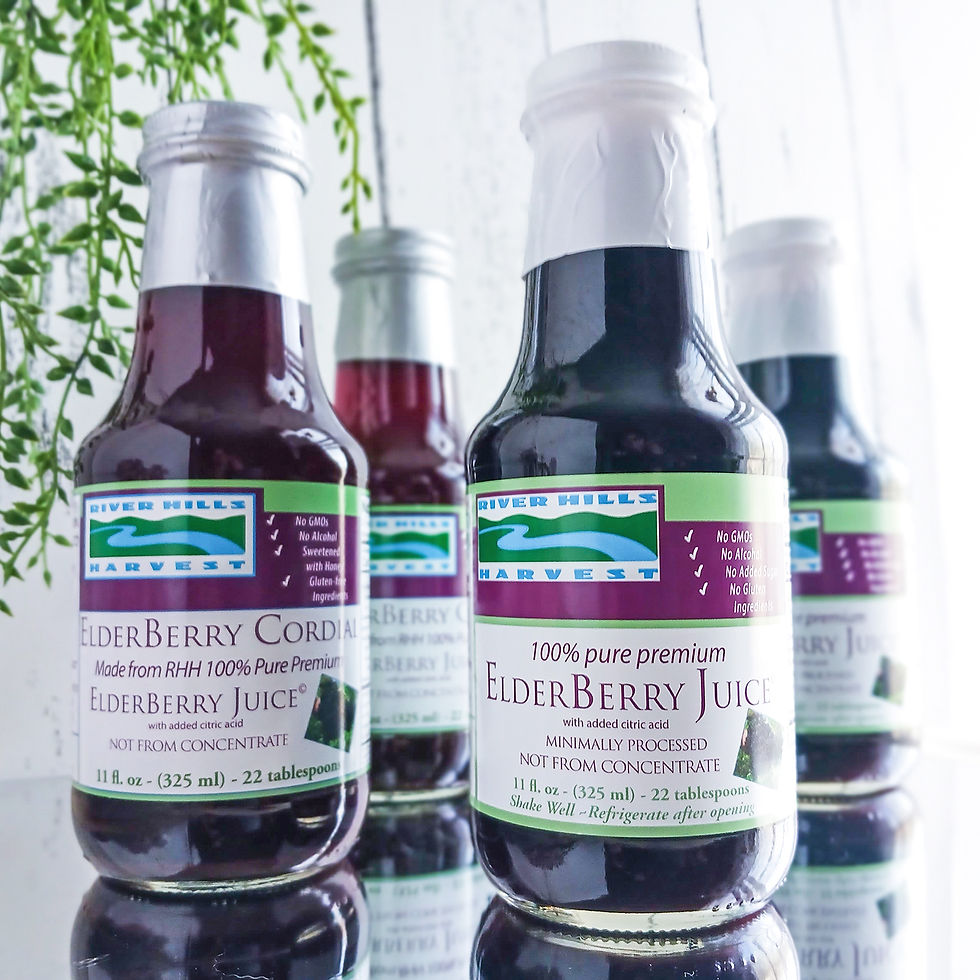Bare Root Elderberry Plants
BARE ROOT AMERICAN ELDERBERRIES
Bare root plants ship out about October, pre-orders are open now.
We initially thought we'd be able to ship these in September, but the combination of hot weather and the plants not entering dormancy yet has caused about a month delay.
All Bare Root Plants $25 Each Plus Shipping
Nursery grown in River Hills Harvest certified nursery, these plants have been tended to since last spring and possess healthy roots, ready for you to plant in your prepared beds this fall. These are one year old plants and will arrive with the top trimmed off.
American Elderberries love being planted in the fall, we have had much success planting them then. Want to learn more about planting them? Give our blog post Planting Bare Root American Elderberries a read.
While supplies last, we'll have these selections available:
Adams
Bob Gordon
Ranch
Pocahontas
York
About American elderberries, Sambucus canadensis:
- In general, elderberries can reach around 10' tall in Northern states while they can reach up to 15' tall in Southern states.
- They thrive and produce the most in full sun but can grow well in part shade.
- Elderberries are going to prefer a soil pH between 5.5 and 6.5.
- They prefer a moist soil with lots of organic material. They do well irrigated but can also do without.
- It is not required to have two different varieties to pollinate, but it can improve production over time.
- Native to the US, Sambucus canadensis berries are able to be processed using cooler temperatures than the European native, Sambucus nigra. Boiling is not required. American elderberries contain more antioxidants than others across the globe.
About River Hills Harvest American elderberry selections:
- Adams 2
- Early ripening with very large clusters of purplish/black berries. Sweeter than most elderberries and somewhat self-fruitful. One of the oldest cultivars from New York. These plants are tall with excellent yields.
- Adams typically grow between 8 and 10 feet tall.
- Indeterminate
- Bob Gordon
- The new cultivar Bob Gordon had a larger berry than Adams. The Bob Gordon was the number one producer in trials and researchers are confident Bob Gordon is a truly superior cultivar for the Midwest and other areas of the country.
- Higher brix, and often chosen for the sweetness in the berries; great for wine.
- Recumbent ripe berry heads that are more shielded from birds.
- Determinate
- Grows 6 to 8 feet tall.
- Pocahontas
- Pocahontas is a fast-growing vigorous cultivar that is extremely prolific, featuring large flower cymes and berry-heads. Big yields in a hurry. However, it blooms a bit later than other genotypes, so shorter-season plantings may find that berries may not ripen.
- Pocahontas elderberries typically grow 12 feet or taller.
- Ranch
- This hardy short plant seems to be most tolerant to harsh conditions. The stockiness provides a lower fruiting canopy for those short pickers. Single stemmed. Tends to grow upright and is not bushy.
- One of the strongest elderberry cultivars, very woody and grows well on less fertile soils.
- Grows 5 to 6 feet tall.
- Determinate
- Wyldewood
- A vigorous producer that is first to reach bud break in spring and is the latest to ripen. Tends toward having three umbrels on each stem. WW1 came in second at university trials and showed a potential of 12,000 pounds per acre. This will be the first varietal released by the University of Missouri. This is our main commercial variety. Its unique processing properties and high yields make it the most popular.
- Indeterminate
- Grows 6 to 10 feet tall.
.png)































